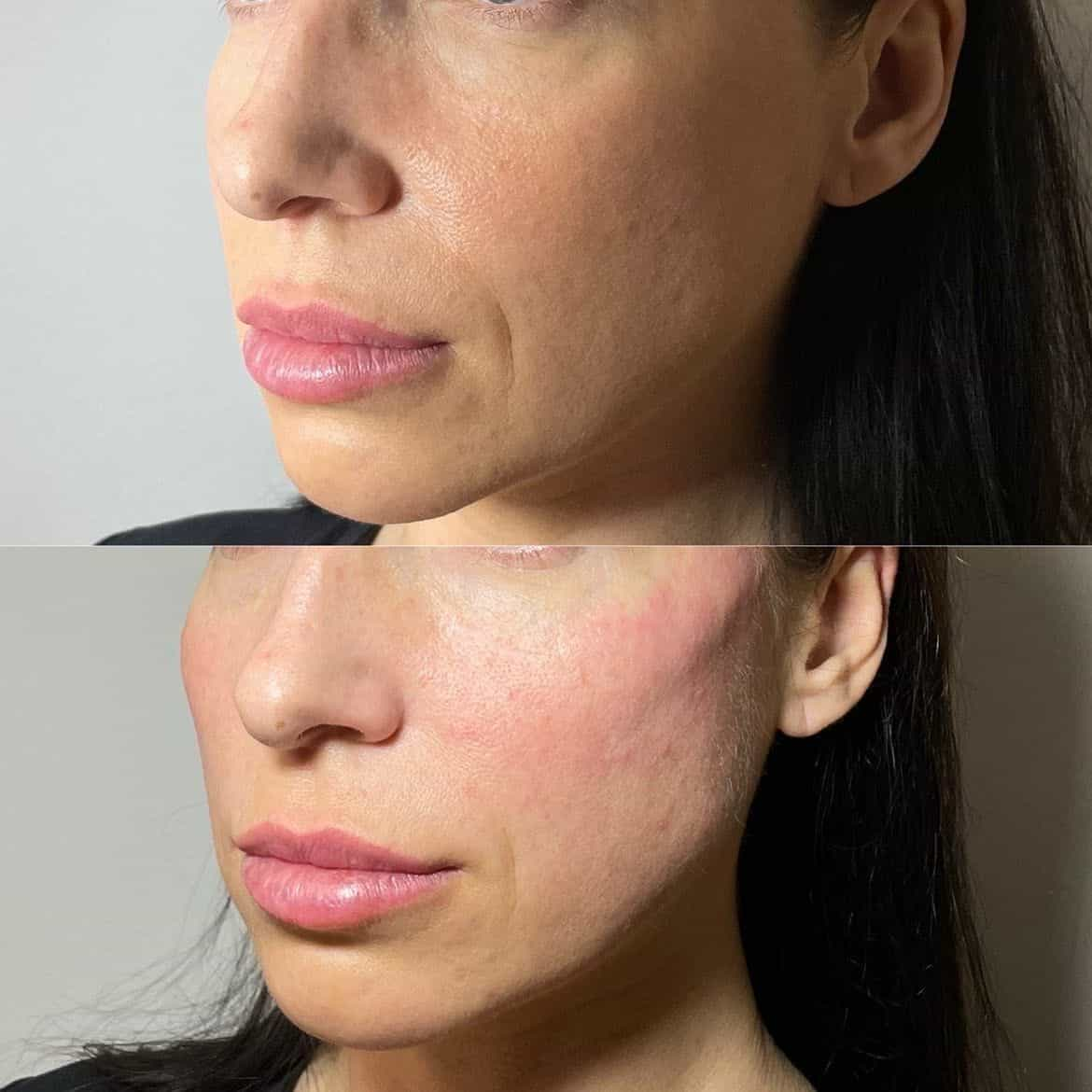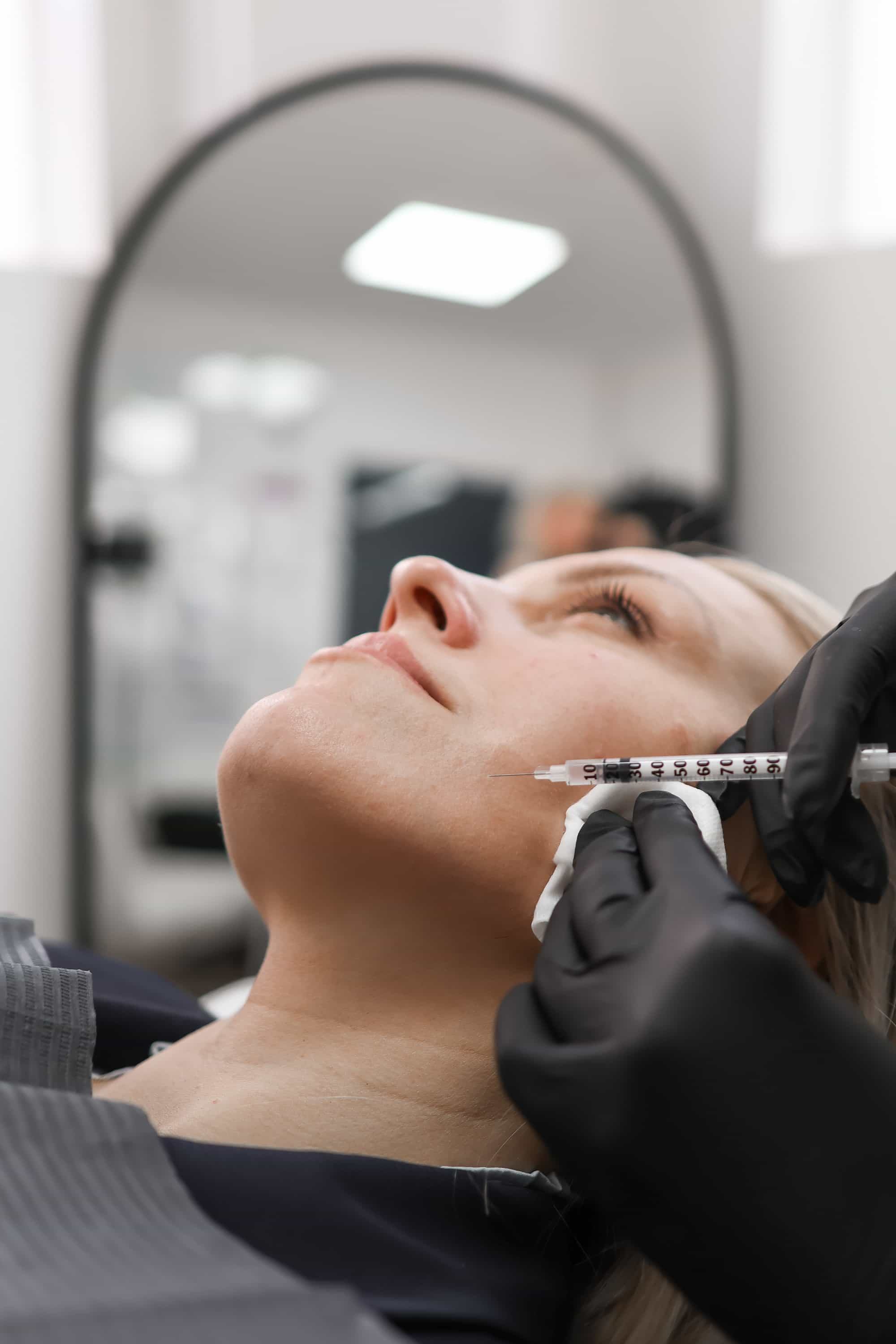Facial Exercises
A downturned smile, where the corners of the mouth droop downwards, can make you appear sad or unhappy even when you’re feeling positive. Fortunately, facial exercises can help strengthen and tone the muscles responsible for lifting the corners of your mouth, promoting a brighter, more cheerful expression.
Jaw and Chewing Muscles
Facial exercises target specific muscles in the jaw and face, including those that contribute to a downturned smile. Strengthening these muscles helps improve their ability to lift the corners of your mouth, counteracting the downward pull. Regularly performing these exercises can lead to a more balanced and upward-curving smile over time.
Focus on exercises that engage the zygomaticus major muscle, which is responsible for lifting the corners of the mouth. Some effective exercises include smiling widely and holding it for several seconds, raising your eyebrows while smiling, and gently tilting your head back and stretching your lips upwards.
Smiling Muscle Stretches
A downturned smile, where the corners of the mouth droop downwards, can make you appear sad or unhappy even when you’re feeling positive. Fortunately, facial exercises can help strengthen and tone the muscles responsible for lifting the corners of your mouth, promoting a brighter, more cheerful expression.
Facial exercises target specific muscles in the jaw and face, including those that contribute to a downturned smile. Strengthening these muscles helps improve their ability to lift the corners of your mouth, counteracting the downward pull. Regularly performing these exercises can lead to a more balanced and upward-curving smile over time.
Focus on exercises that engage the zygomaticus major muscle, which is responsible for lifting the corners of the mouth. Some effective exercises include smiling widely and holding it for several seconds, raising your eyebrows while smiling, and gently tilting your head back and stretching your lips upwards.
Tongue Twisters for Facial Muscle Activation
A downturned smile, where the corners of the mouth droop downwards, can make you appear sad or unhappy even when you’re feeling positive. Fortunately, facial exercises can help strengthen and tone the muscles responsible for lifting the corners of your mouth, promoting a brighter, more cheerful expression.
Facial exercises target specific muscles in the jaw and face, including those that contribute to a downturned smile. Strengthening these muscles helps improve their ability to lift the corners of your mouth, counteracting the downward pull. Regularly performing these exercises can lead to a more balanced and upward-curving smile over time.
Focus on exercises that engage the zygomaticus major muscle, which is responsible for lifting the corners of the mouth. Some effective exercises include:
- Smiling widely and holding it for several seconds
- Raising your eyebrows while smiling
- Gently tilting your head back and stretching your lips upwards
Lifestyle Changes
A downturned smile, where the corners of the mouth droop downwards, can negatively impact your appearance. Even when you’re feeling positive, a downturned smile can make you appear sad or unhappy. Fortunately, there are ways to combat this.

Stress Management Techniques

Lifestyle changes and stress management techniques can play a significant role in preventing a downturned smile. Stress is known to contribute to muscle tension, which can manifest as facial expressions like a downturned mouth.
Finding healthy ways to manage stress is crucial. This might include practicing relaxation techniques such as deep breathing exercises, meditation, or yoga. Regular physical activity can also help alleviate stress and improve overall mood.
Prioritizing sleep is another important aspect of managing stress and promoting a positive facial expression. Aim for 7-8 hours of quality sleep per night to allow your body and mind to rest and rejuvenate.
Maintaining good nutrition is essential for overall health and well-being, including facial appearance. Eating a balanced diet rich in fruits, vegetables, and whole grains can nourish the skin and contribute to a healthy complexion.
Improved Sleep Habits
Lifestyle changes and stress management techniques can play a significant role in preventing a downturned smile. Stress is known to contribute to muscle tension, which can manifest as facial expressions like a downturned mouth.
Finding healthy ways to manage stress is crucial. This might include practicing relaxation techniques such as deep breathing exercises, meditation, or yoga. Regular physical activity can also help alleviate stress and improve overall mood.
Prioritizing sleep is another important aspect of managing stress and promoting a positive facial expression. Aim for 7-8 hours of quality sleep per night to allow your body and mind to rest and rejuvenate.
Maintaining good nutrition is essential for overall health and well-being, including facial appearance. Eating a balanced diet rich in fruits, vegetables, and whole grains can nourish the skin and contribute to a healthy complexion.
Balanced Diet and Hydration
Lifestyle changes and stress management techniques can play a significant role in preventing a downturned smile. Stress is known to contribute to muscle tension, which can manifest as facial expressions like a downturned mouth.
Finding healthy ways to manage stress is crucial. This might include practicing relaxation techniques such as deep breathing exercises, meditation, or yoga. Regular physical activity can also help alleviate stress and improve overall mood.
Prioritizing sleep is another important aspect of managing stress and promoting a positive facial expression. Aim for 7-8 hours of quality sleep per night to allow your body and mind to rest and rejuvenate.
Maintaining good nutrition is essential for overall health and well-being, including facial appearance. Eating a balanced diet rich in fruits, vegetables, and whole grains can nourish the skin and contribute to a healthy complexion.
Addressing Underlying Causes
While facial exercises can help improve muscle strength and potentially elevate your smile, addressing the underlying causes of a downturned smile is crucial for long-lasting results. Stress, poor nutrition, and lack of sleep can all contribute to muscle tension and negatively impact facial expressions.
Medical Evaluation for Neurological Conditions
While facial exercises can help improve muscle strength and potentially elevate your smile, addressing the underlying causes of a downturned smile is crucial for long-lasting results.
Stress, poor nutrition, and lack of sleep can all contribute to muscle tension and negatively impact facial expressions.
- Stress Management:
- Nutrition
- Sleep
Therapy for Emotional Distress or Trauma
Addressing the underlying causes of emotional distress or trauma is crucial for long-lasting positive change. While therapy can provide support and guidance in working through these issues, lifestyle modifications can also play a significant role in managing symptoms and promoting overall well-being.
Stress management techniques such as mindfulness, meditation, and deep breathing exercises can help regulate emotions and reduce tension. Cultivating healthy coping mechanisms is essential for navigating challenging situations and preventing emotional overwhelm.
A balanced diet rich in fruits, vegetables, and whole grains nourishes the body and supports mental health. Certain nutrients, like omega-3 fatty acids and B vitamins, are known to have mood-boosting effects.
Adequate sleep is crucial for emotional regulation and cognitive function. Aiming for 7-8 hours of quality sleep per night allows the body and mind to rest and recharge.
Cosmetic Procedures
Cosmetic procedures offer a range of options to enhance one’s appearance, but it’s important to understand the potential consequences before making any decisions.
Botox Injections for Muscle Relaxtion
Botox injections are a popular cosmetic procedure used to temporarily paralyze muscles, leading to a smoother appearance. When it comes to preventing a downturned smile, Botox can be injected into the muscles responsible for frowning or pulling the corners of the mouth downwards.
By relaxing these muscles, Botox can help lift the corners of the mouth, creating a more cheerful and upward-curving smile. It’s important to consult with a qualified medical professional to determine if Botox is an appropriate treatment option for you and to discuss any potential risks or side effects.
Dermal Fillers to Enhance Facial Volume
Dermal fillers are injectable substances used to add volume and plumpness to the face. They can be effective in addressing a downturned smile by restoring lost volume in the cheeks, which can contribute to a more youthful and lifted appearance.
By injecting dermal fillers into specific areas around the mouth, such as the nasolabial folds or marionette lines, a smoother transition from the corners of the mouth upwards can be achieved, leading to a less downturned appearance.
Different types of dermal fillers are available, with varying compositions and longevity. It’s important to consult with a qualified medical professional who can assess your individual needs and recommend the most suitable filler for you.
Learn about effective ways to treat a downturned smile with Dr. Laura Geige.
- Ensuring Safe And Effective Baby Botox Treatments In Surrey - May 12, 2025
- The Legal Status Of THC Drinks In Recreational And Medical States - May 12, 2025
- How To Prevent A Downturned Smile From Happening - May 12, 2025
